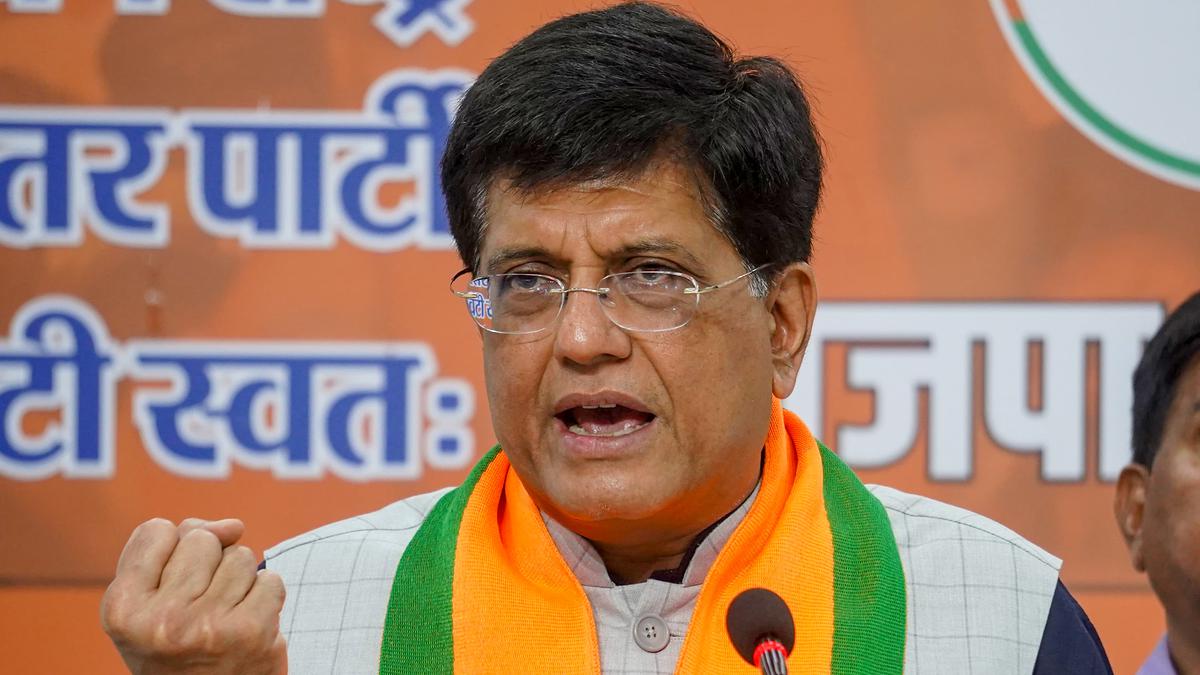
Four ‘old’ warhorses are first-time Lok Sabha members from Maharashtra
The Hindu
But four first-time MPs from Maharashtra have begun new careers in their 60s; well almost, for one of them will turn 60 next week and another is 76.
Sixty is an age when most retire. But four first-time MPs from Maharashtra have begun new careers in their 60s; well almost, for one of them will turn 60 next week and another is 76. These newly elected MPs tasted electoral success for the first time in their political careers.
In Mumbai, the BJP’s Piyush Goyal, a former Union Minister, will be 60 on June 13. This election was his first attempt to win a Lok Sabha seat. So far, Mr. Goyal has been a member of the Rajya Sabha and has handled multiple portfolios, including finance, railways, coal, corporate affairs, commerce and industry, and textiles.
Mr. Goyal’s parents were BJP loyalists. In the Atal Bihari Vajpayee government, his father Vedprakash Goyal was the Union Minister of shipping. His mother, Chandrakanta Goyal, was a three-time MLA from Mumbai’s Matunga constituency.
Mr. Goyal won the Mumbai North seat, considered ‘safe’ given the large presence of Gujarati, Kutchi and Marwari-speaking voters, particularly in the suburbs of Kandivali, Borivali and Dahisar. He won by a margin of 3.57 lakh votes against the Congress’s Bhushan Patil.
Shiv Sena (UBT) leader Anil Desai, elected from Mumbai’s South-Central seat, is 67. A Thackeray family loyalist and close aide of the party leader Uddhav Thackeray, the former Rajya Sabha member is often involved in managing and strategising elections.
It was a close contest between him and his former party colleague Rahul Shewale of the Eknath Shinde-led Shiv Sena. Mr. Desai was reportedly unhappy after being given the South-Central seat as he had set his sights on the neighbouring North-Central constituency. His strategising skills combined with voter sympathy towards Mr. Thackeray’s Sena and anti-incumbency worked in his favour. He won by 53,384 votes.
His biggest leads came from Dharavi and Anushakti Nagar that have a large Muslim and Dalit population. Until just over a decade ago, these two communities were not Shiv Sena voters. This time, a softer stance on these communities worked in favour of the Sena (UBT).

“Writing, in general, is a very solitary process,” says Yauvanika Chopra, Associate Director at The New India Foundation (NIF), which, earlier this year, announced the 12th edition of its NIF Book Fellowships for research and scholarship about Indian history after Independence. While authors, in general, are built for it, it can still get very lonely, says Chopra, pointing out that the fellowship’s community support is as valuable as the monetary benefits it offers. “There is a solid community of NIF fellows, trustees, language experts, jury members, all of whom are incredibly competent,” she says. “They really help make authors feel supported from manuscript to publication, so you never feel like you’re struggling through isolation.”

Several principals of government and private schools in Delhi on Tuesday said the Directorate of Education (DoE) circular from a day earlier, directing schools to conduct classes in ‘hybrid’ mode, had caused confusion regarding day-to-day operations as they did not know how many students would return to school from Wednesday and how would teachers instruct in two modes — online and in person — at once. The DoE circular on Monday had also stated that the option to “exercise online mode of education, wherever available, shall vest with the students and their guardians”. Several schoolteachers also expressed confusion regarding the DoE order. A government schoolteacher said he was unsure of how to cope with the resumption of physical classes, given that the order directing government offices to ensure that 50% of the employees work from home is still in place. On Monday, the Commission for Air Quality Management in the National Capital Region and Adjoining Areas (CAQM) had, on the orders of the Supreme Court, directed schools in Delhi-NCR to shift classes to the hybrid mode, following which the DoE had issued the circular. The court had urged the Centre’s pollution watchdog to consider restarting physical classes due to many students missing out on the mid-day meals and lacking the necessary means to attend classes online. The CAQM had, on November 20, asked schools in Delhi-NCR to shift to the online mode of teaching.









